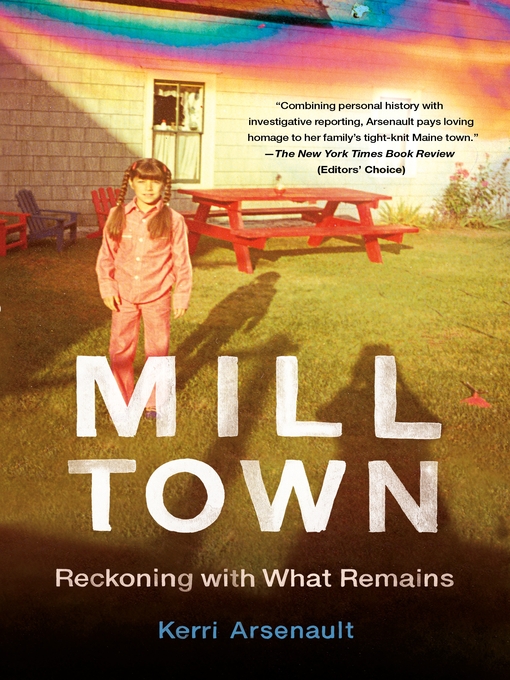Winner of the 2021 Rachel Carson Environmental Book Award
Winner of the 2021 Maine Literary Award for Nonfiction
Finalist for the 2020 National Book Critics John Leonard Prize for Best First Book
Finalist for the 2021 New England Society Book Award
Finalist for the 2021 New England Independent Booksellers Association Award
A New York Times Editors' Choice and Chicago Tribune top book for 2020
"Mill Town is the book of a lifetime; a deep-drilling, quick-moving, heartbreaking story. Scathing and tender, it lifts often into poetry, but comes down hard when it must. Through it all runs the river: sluggish, ancient, dangerous, freighted with America's sins." —Robert Macfarlane, author of Underland
Kerri Arsenault grew up in the small, rural town of Mexico, Maine, where for over 100 years the community orbited around a paper mill that provided jobs for nearly everyone in town, including three generations of her family. Kerri had a happy childhood, but years after she moved away, she realized the price she paid for that childhood. The price everyone paid. The mill, while providing the social and economic cohesion for the community, also contributed to its demise.
Mill Town is a book of narrative nonfiction, investigative memoir, and cultural criticism that illuminates the rise and collapse of the working-class, the hazards of loving and leaving home, and the ambiguous nature of toxics and disease with the central question; Who or what are we willing to sacrifice for our own survival?

-
Creators
-
Publisher
-
Awards
-
Release date
September 1, 2020 -
Formats
-
Kindle Book
-
OverDrive Read
- ISBN: 9781250155955
-
EPUB ebook
- ISBN: 9781250155955
- File size: 60312 KB
-
-
Accessibility
-
Languages
- English
-
Reviews

Loading
Formats
- Kindle Book
- OverDrive Read
- EPUB ebook
Languages
- English
Why is availability limited?
×Availability can change throughout the month based on the library's budget. You can still place a hold on the title, and your hold will be automatically filled as soon as the title is available again.
The Kindle Book format for this title is not supported on:
×Read-along ebook
×The OverDrive Read format of this ebook has professional narration that plays while you read in your browser. Learn more here.